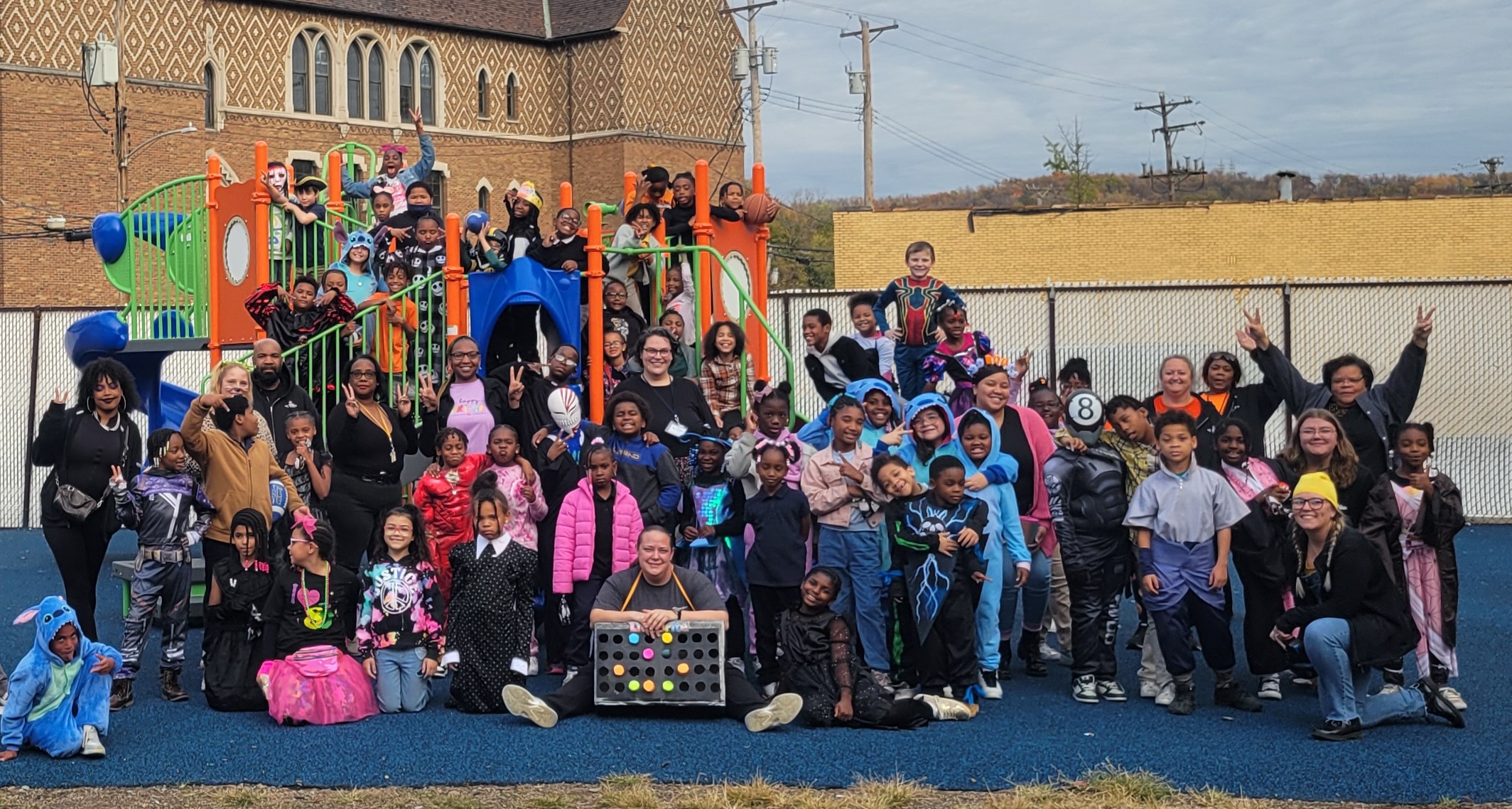Rising to the occasion: Dave Coplan on the evolving human services landscape
As the executive director of Human Services Center Mon Valley, a United Way partner agency, Dave Coplan has plenty on his plate. The center houses 12 tenant agencies at its multipurpose campus in Turtle Creek and runs an array of its own programs including the region’s largest workforce prep for youth, free tax prep and a food pantry. Dave is also an adjunct professor at CMU and the University of Pittsburgh’s School of Public and International Affairs, where he teaches human services management, fundraising, public policy and advocacy. We asked him about the value of a United Way partnership amid the rising needs and challenges facing his sector.
What would people be surprised to learn about your work and the people you serve?
People are often surprised to hear about poverty outside the city, but the Mon Valley has the second highest rates of poverty regionally. Of the 10,000 people who come through our doors annually to access services, about 2/3 have a total household income of less than $15,000 and 40% have household incomes under $10,000. Individuals with income limits need multiple services and when they receive those services it benefits the whole community because everyone advances when people are gainfully employed.
Many agencies are worried about funding now – how do you manage this?
We don’t have the resources to do everything, but we try to rise to community needs and offer high-quality programs that deliver. One of our organizational values is that we don’t stop and start any of our programs. The only program we’ve had to shutter was in 1992 when we lost funding for what was a fully state-funded program. We learned from that experience to never have a program fully funded by one partner and to instead diversify our funding streams. This creates stability; if there’s a cut in one source of funding, then we have other options to rely on.

How do United Way’s investments fit into your overall funding picture?
United Way’s funding is the glue that holds the rest of our funding together. It’s not as restrictive as most government or foundation funding streams and the three-year grants allow us to plan ahead. During the COVID-19 pandemic, United Way allowed us the flexibility to use funding however we needed, and other foundations followed that lead. United Way funding is also a significant seal of approval and other funders look for that seal when deciding to fund us.
Foundations and United Way’s investments cannot possibly backfill government funding. It’s even more important now for nonprofits to have an elevated voice on behalf of the people we serve to ensure appropriate government investment in our work. Less than 5% of nonprofits nationally do advocacy and lobbying work. United Way is a critical advocacy partner, co-hosting a county executive roundtable with The Pittsburgh Foundation in 2023. Human services wouldn’t have had that audience otherwise, and because United Way asked, the candidates showed up.
Education is clearly a core value for you. You’ve won multiple teaching awards, including Pitt’s School of Social Work Outstanding Field Instructor award. Why are you dedicated to teaching?
It’s about creating the next generation of nonprofit leaders. As I say to my students, the people we serve deserve the highest level of professionalism, accountability and outcomes management. If you’re not willing to rise to the occasion, then find another field. The people who receive the services are the reason we do this. Some lose sight of that. Systems issues are real, but I say focus on the real impact: how we’re helping people.